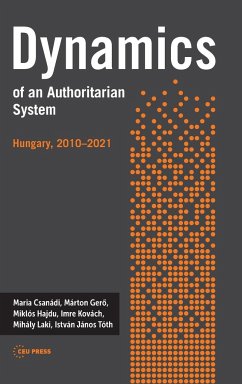In this book, six researchers from different professional backgrounds examine the dynamics of the development and reproduction of an authoritarian system. The chapters empirically show how the authoritarian system gradually captures -- and diffuses into -- the society's and the economy's subsystems; describe how it captures the national, intermediate, and micro level sub-structures and reproduces itself as it expands. It empirically analyzes the mechanisms, instruments, and institutions of political capture. The authors distinguish between and explore welfare, development, and recombinant projects and their interrelationships. They study the existence of political favoritism in the case the politically connected enterprises based on an analysis of the corruption risk of 242,183 public tenders. They detail the crony system's functioning and political connections' network aspects in the rapid enrichment of politically connected enterprises. The book exemplifies the vulnerability of democratic institutions to authoritarian and populist regimes, including the tendency for institutionalized corruption to develop systemically, its destructive power in the public and business sectors, and the built and natural environment.
Hinweis: Dieser Artikel kann nur an eine deutsche Lieferadresse ausgeliefert werden.
Hinweis: Dieser Artikel kann nur an eine deutsche Lieferadresse ausgeliefert werden.








